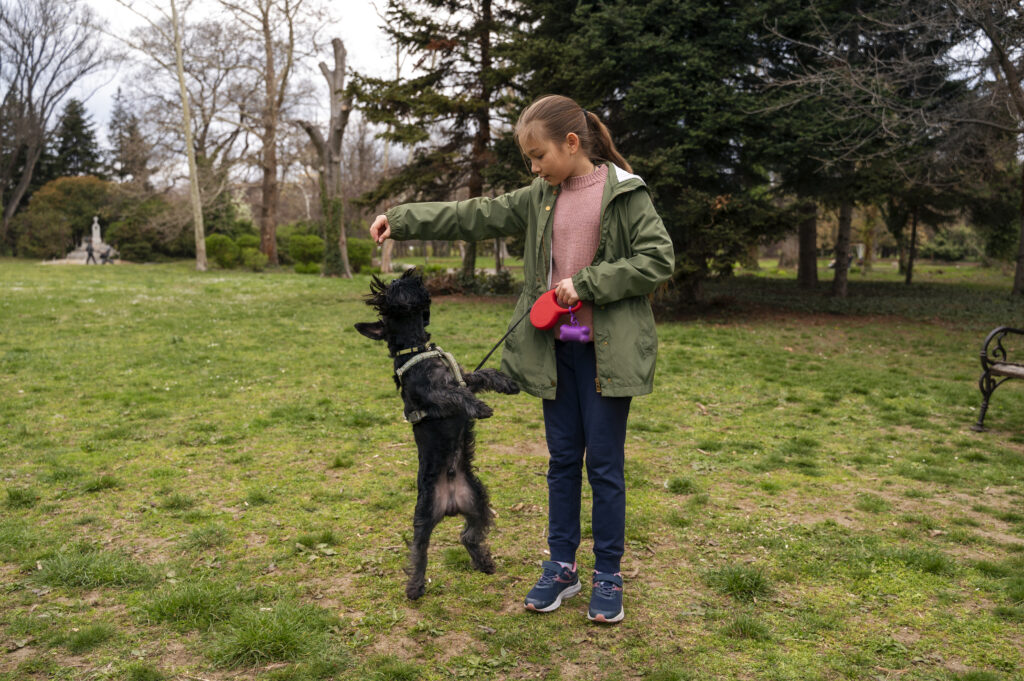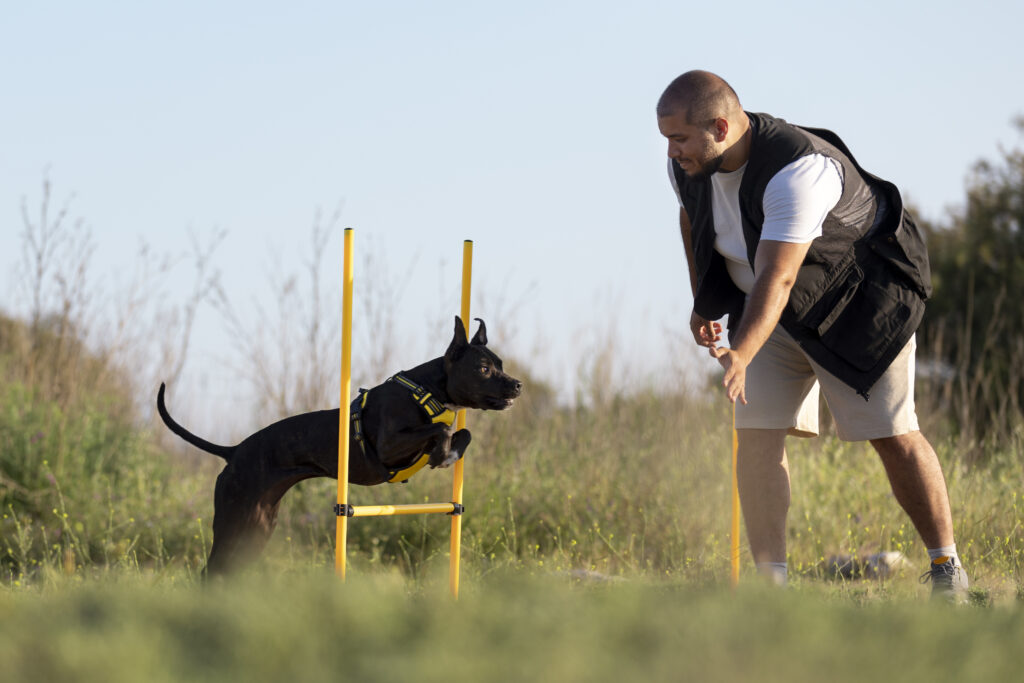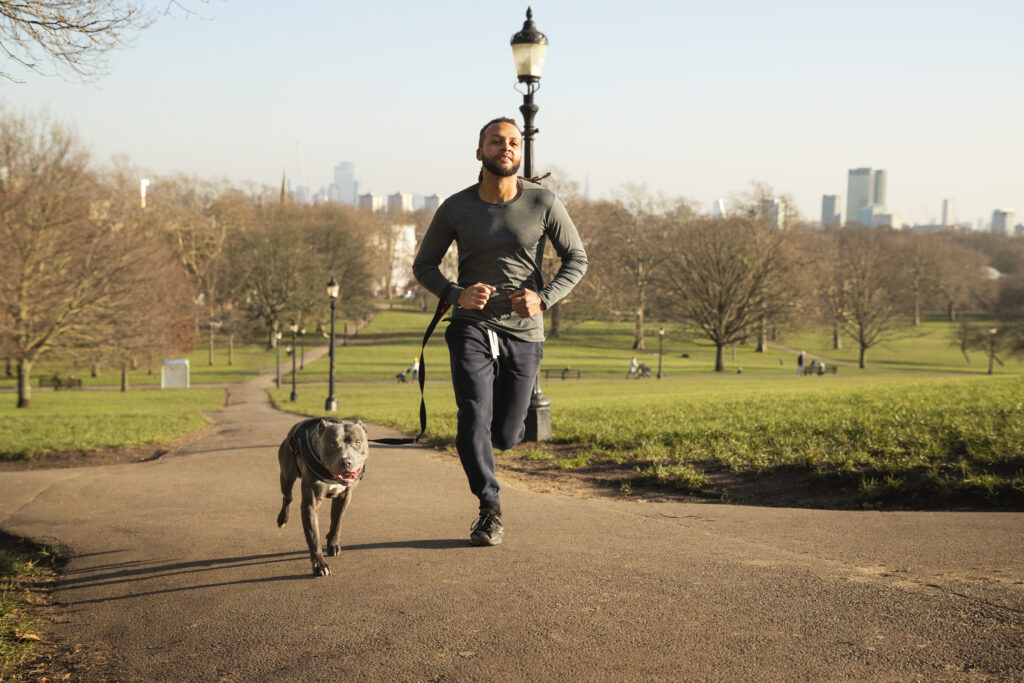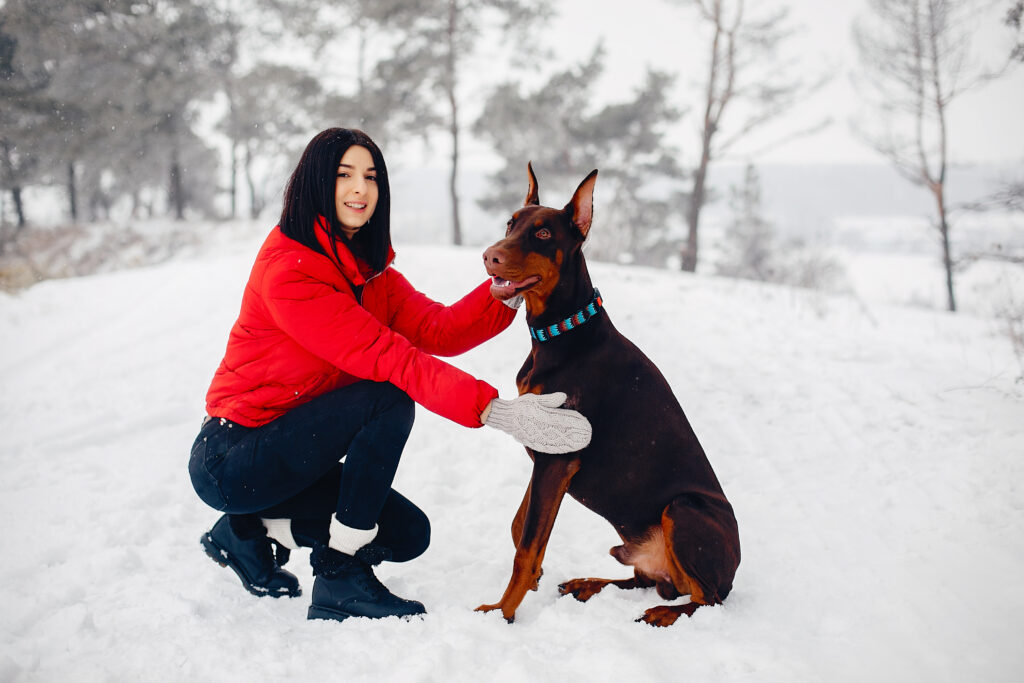Introduction
Here are the top tips for Doberman health and longevity. It is well known that Dobermans are loyal, intelligent, and athletic. They do, however, have a unique set of health issues that any responsible owner should be aware of, just like any other breed.
You can contribute to the long, healthy life of your Doberman by being aware of these typical health problems and implementing preventative measures.

Understanding Common Doberman Health Issues
Table of Contents
Although they are prone to specific illnesses, Dobermans are typically healthy dogs. The following are some of the most typical health problems to be aware of:
1. Dilated Cardiomyopathy (DCM)
What It Is: A disorder in which the heart enlarges and becomes incapable of efficiently pumping blood.
Symptoms include coughing, exhaustion, trouble breathing, and abrupt collapse.
Prevention and care include routine veterinary examinations, nutritious food, and, in the event of an early diagnosis, medication.
2. Hip Dysplasia
What It Is: An inherited condition that causes the hip joint to deform, resulting in arthritis.
Reluctance to run or jump, difficulty getting up, and limping are symptoms. Care &
Prevention: Keep your dog at a healthy weight, give them regular exercise, and follow your veterinarian’s advice for joint supplements.
3. Von Willebrand's Disease
What It Is: A specific protein that aids in blood clotting is lacking in this bleeding condition.
Nosebleeds, bleeding gums, and excessive bleeding from injuries are warning signs. Care &
Prevention: routine blood work and abstaining from drugs that may exacerbate bleeding complications.
4. Hypothyroidism
What It Is: sluggish metabolism due to an underactive thyroid gland.

Lethargy, weight increase, and a lifeless coat are symptoms.
Prevention and Care: Regular thyroid examinations and, if necessary, hormone replacement treatment.
5. Wobbler Syndrome
What It Is: a neurological disorder that typically affects the neck and is brought on by spinal cord compression.
Signs: Unsteady or wobbling stride, limb weakness, and trouble walking. Care & Prevention: Weight control to lessen the strain on the spine, routine veterinary examinations, and likely surgery in extreme situations.
Nutrition for a Healthy Doberman
For your Doberman to live a long and healthy life, proper nourishment is essential. Their energy levels, muscular maintenance, and coat health will all be supported by a well-balanced meal that is enhanced with premium proteins, essential fatty acids, vitamins, and minerals.
Whether your Doberman is a puppy, adult, or senior, it’s critical to select a dog food that suits their particular needs. Finding the best diet and portion amounts to avoid obesity and nutritional deficiencies can be facilitated by routinely speaking with your veterinarian.
Additionally, keep an eye out for possible food allergies and gradually introduce new foods to observe how they react.
Importance of Regular Exercise
Maintaining the physical and emotional well-being of your Doberman requires regular exercise. Dobermans thrive on frequent, strenuous activities like running, agility training, and interactive play because of their innate athleticism and high energy levels.
Regular exercise helps prevent behavioral problems that can result from boredom and stored energy, in addition to improving cardiovascular health. Make sure your dog feels involved and content by adjusting the type and intensity of exercise to their age, health, and personal preferences.

Throughout activities, keep an eye on them to avoid injury or overexertion.
You may significantly improve your Doberman’s quality of life and secure their company for many years by combining regular exercise, healthy eating, and attentive medical treatment.
Dog Care Tips for a Healthy Doberman
It takes more than just going to the vet to keep your Doberman healthy. To keep your dog in the best possible condition, follow these vital dog care tips:
Balanced Diet
Give your Doberman a nutritious, well-balanced meal that is appropriate for his age, weight, and level of exercise. To determine the finest feeding options, speak with your veterinarian.
Regular Exercise
Dobermans are active dogs that need to exercise frequently to maintain their health. Walk, run, and play every day to maintain their mental and physical health.

Mental Stimulation
Additionally, Dobermans require mental stimulation in addition to physical exercise. Interactive games, training programs, and puzzle toys can all help keep young minds occupied. Their mental acuity and powerful muscles.
Routine Vet Visits
Additionally, Dobermans require mental stimulation in addition to physical exercise. Interactive games, training programs, and puzzle toys can all help keep young minds occupied. Their mental acuity and powerful muscles.
Dental Care
Despite its importance, oral health is frequently neglected. Regularly brush your Doberman’s teeth and give them dental toys or treats to help keep them clean.

Frequently Asked Questions
Q: How much exercise does a Doberman need daily?
A: Due to their high level of energy, Dobermans usually require one to two hours of intense exercise every day. Walks, runs, and interactive play sessions might all fall under this category. Their physical and emotional health may also benefit from participating in exercises like agility training.
Q: Are Dobermans good family pets?
A: Dobermans may be great family companions. They are renowned for being devoted and kind toward their families. Early socialization and proper training are crucial to ensuring they grow up to be well-behaved pets.
Q: What should I feed my Doberman puppy?
A diet that promotes Doberman puppies’ high energy levels and quick growth is necessary. High-quality puppy food made for large breeds is the best option. See your veterinarian for specialized dietary advice, and modify serving quantities according to the size and activity level of your puppy.
Q: How do I know if my Doberman is developing hip dysplasia?
A Doberman’s inability to stand, hesitancy to run, jump, or climb stairs, and limping are early indicators of hip dysplasia. Any early indications can be found with the use of routine veterinary examinations and behavior monitoring. The problem can be managed by maintaining a healthy weight and giving joint supplements.
Q: Can Dobermans live in apartments?
A Doberman’s need for frequent exercise and mental stimulation must be satisfied, even if they can live in apartments. For them to stay content and healthy in smaller living areas, daily exercise regimens and brain enrichment activities are essential. It can help to have access to a local park or yard for extra exercise.
Conclusion
Doberman ownership is a fulfilling experience, and with proper care, you can guarantee your pet’s happiness and health for the rest of their lives.
You’re investing in the longevity and well-being of your Doberman by being informed about common health problems and following these dog care guidelines. For further individualized guidance on the best health habits for your special companion, speak with your veterinarian.

Pingback: Soothing Digestive Woes: Wellness Tips for Tupelo Locals -